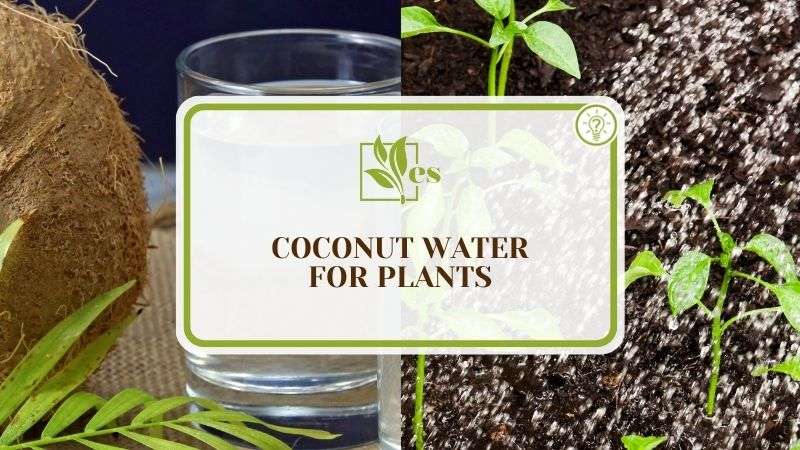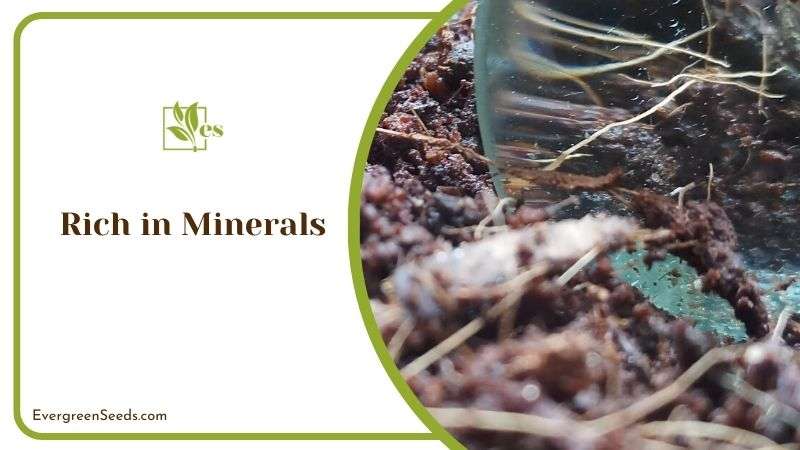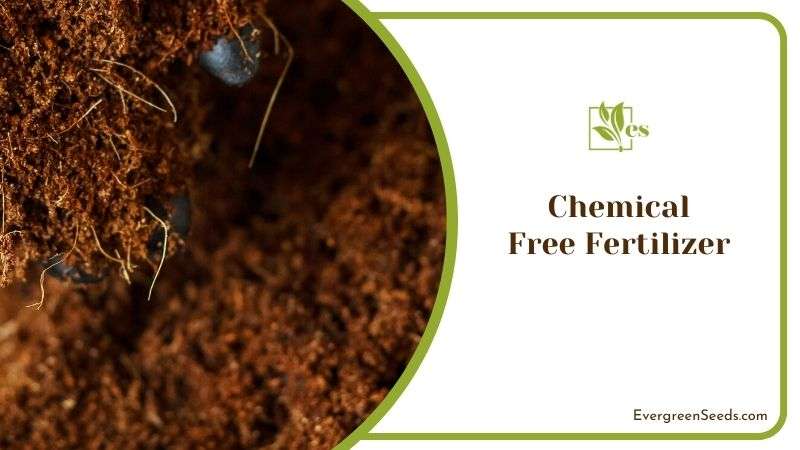- How Tall Does Calendula Grow: A Guide for Gardeners - October 23, 2024
- How Tall Does Oregano Grow: Essential Growth Insights for Gardeners - October 23, 2024
- How Tall Do Lilacs Grow: Essential Tips for Cultivating Beautiful Shrubs - October 23, 2024
Coconut water for plants is a good source of nutrients, this is because it contains Gibberellic acid, cytokinin hormones, magnesium, and other minerals that help the plants to develop.

The water also boosts soil nutrients and essential plant elements, leading to increased yield. This article will help you understand if coco water is safe for plants, how much to use, and if it can kill plants.
JUMP TO TOPIC
Can You Use Coconut Water for Plants?
💥 Yes, you can safely use coco water to nourish your plants. It contains minerals, vitamins, amino acids, hormones, and other plant elements that support their growth and production. These factors will help the plant to thrive and to develop a boost in its growth.
In short, it is a natural fertilizer that helps absorb significant nutrients in the soil. It provides the plant with growth hormones and other essential elements like minerals, vitamins, and amino acids. These help with plant development and boost yield.
You can also use the water to propagate plants because it contains a rooting hormone that enhances the growth of roots on cuttings. Soaking plant cuttings in coco water for four to six hours helps them root faster, increasing the chances of growth.
– Rich in Minerals
Coco water appears naturally but has similar benefits to commercial liquid fertilizers. It increases soil nutrients, nitrogen, and minerals like phosphorous and potassium, and makes them more soluble.

Nitrogen is a significant component of coco water and it supports the growth of the plant. The ingredient helps plant leaves absorb maximum sunlight for photosynthesis. This leads to the production of energy used for cell division and the development of the plant. Nitrogen also produces amino acids and proteins used by the plant.
So, how does this water affect plant growth? One of the significant components of coco water is gibberellic acid. Plants naturally contain gibberellins that stimulate cell division and elongation, increasing the size of leaves and stems. The gibberellic acid in coco water also increases growth by enhancing root development hence faster germination.
– Rich in Hormones
Besides gibberellic acid, coco water has cytokinin hormones. These hormones are also responsible for the plant’s growth, as they increase chlorophyll which supports photosynthesis. Cytokinin hormones are also suitable for nutrient uptake and embryonic development, essential during the plant’s growth.
– Boosting the Growth
The presence of minerals, vitamins, and amino acids in coco water supports the development of plants. Minerals help with leaf, stem, and root growth. They are also helpful in photosynthesis, where the plant produces glucose responsible for growth. Vitamins and amino acids help with protein synthesis, development, and stress response.
If you are wondering, will coconut water kill plants, don’t worry, this nutrition-rich water will not kill your plants. Instead, it contains useful minerals, hormones, vitamins, and amino acids to help with cell division boosting growth. The hormones also lead to the development of healthier and bushier plants.
– Cell Division
If your plant suffers deficiencies, don’t worry because this is the type of water that will be a perfect solution. This is because the water contains many nutrients and minerals you introduce to the plant without chemical fertilizer.
– Chemical Free Fertilizer
Another reason coco water will not kill your plants is that it is natural and environmentally friendly. Unlike factory-manufactured fertilizers that can kill the roots leading to the plant’s death, coco water does not contain chemicals to kill plants.

Instead, it protects the plants from pests and regulates the soil’s pH levels. Therefore, you don’t need to use factory-made pesticides which kill plants and slow their growth. However, you also need to take into account the type of soil you are using.
How Can You Use The Water of Coconuts To Benefit the Plants?
You can use coconut water for plants by diluting them with some water, and it spraying them around the leaves of the plant to boost their growth. Lastly, you can also ferment the water, and then spray it upon the plant.
– Dilution
Before watering your plants with coco water, you must know how much coconut water per gallon for plants is enough. Put 0.05 gallons of coco palm water per water gallon. Ensure you shake the solution well and pour it into your plant every two to four weeks.
When you dilute it with some water, you will see that it is effectively helping your plant, because this way you are limiting the risk of some fertilizer burn. The latter would also happen even if the given fertilizer is on that is organic.
– Spraying
Another way of using coco water is by spraying it on plant leaves for indoor plants. You can also spray the vegetables for a more significant yield and the flowering plants to make them bushier and bloom better.

Since coco water contains important hormones such as the rooting one, you can apply it on cuttings. Dip the cuttings in a coco water container and let them sit for four hours. Once you plant them in the soil, they will root faster. The water also helps to increase the growth rate of seedlings.
– Ferment it
Fermented coco water is as safe as normal coco water if you are thinking “can I use fermented coconut water for plants?” On the same topic, it is actually very good because fermenting increases vitamin and mineral concentration in the water. These boost the growth of plants’ leaves, stems, and roots and increase the production of fruits, flowers, and seeds.
Plants use the minerals for chlorophyll production. When exposed to sunlight, they absorb sunlight through the chlorophyll to photosynthesize. This leads to manufacture of glucose, which is used in cell division and other processes. The plant stores excess glucose, which helps with respiration at night.
When Should You Use Coconut Water to Help Your Plant?
You should use coconut water to help your plant right after you have repotted them because they need to boost their growth. When they look weak, you would like them to boost up instead, and lastly after you have propagated the plant.
– After Repotting
When repotting plants after they outgrow their growing vases, you can use this water to protect the roots. The water also has unique elements that help to reduce transplanting shock. Reducing transplanting shock helps the plant to continue growing normally. You require a 0-5-5 coconut water NPK ratio to support the growth of the plants.
– When They Look Weak
Coco water has similar effects on indoor plants as those grown outdoors. When you pour it into your potted plant, the water introduces nutrients, minerals, and vitamins that help the plant’s growth, by directly pouring it into the soil.
– After Propagation
You can also use it to spray your potted plant’s leaves to encourage nutrient absorption. When propagating your succulents, cacti, or Pothos, you can dip their cuttings in the water to fasten rooting. The water contains natural auxins, which speed up the development of roots and shoots.
However, do not overwater your indoor plants with coco water. Too much water suffocates the roots, reducing their effectiveness in transporting water and minerals. This causes slow drying of the leaves and root rot, which can cause the total death of the plant.
Does Coconut Milk Support Plant Growth?
No, coconut milk is the processed product of water; it is heavily dense with minerals, although it lacks some boosting hormones that the water has that help the development. As a result, it will not encourage the growth of the plant.

It contains potassium, phosphorus, and vitamins which can boost your plant’s growth. It also stimulates cell division in various plant parts, hence growth. However, since milk is a processed byproduct, it does not have active cytokinin. Therefore, it won’t support root and shoot development as well as the water does.
Note that many plant growers confuse coco water and coconut milk. Using coconut milk on your plants will not have a good effect on the plants because it is processed and boiled. Boiling kills some nutrients and denatures cytokinin hormones, so it will not efficiently support the growth of the plant. If you want to water your plants with tap water instead of coconut water, make sure to purify it first.








